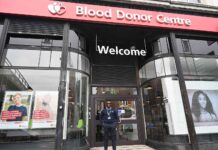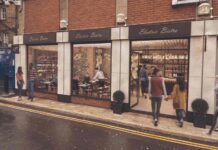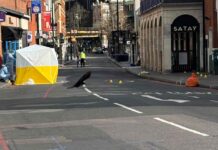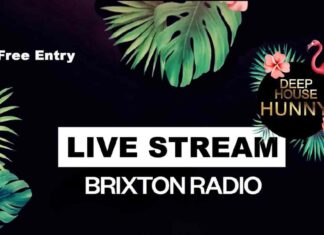The BBC’s Saved by a Stranger documents Marc Thompson’s search for the counsellor who helped him after he was diagnosed with HIV as a teenager, while also sharing his love of the Brixton community he grew up in.
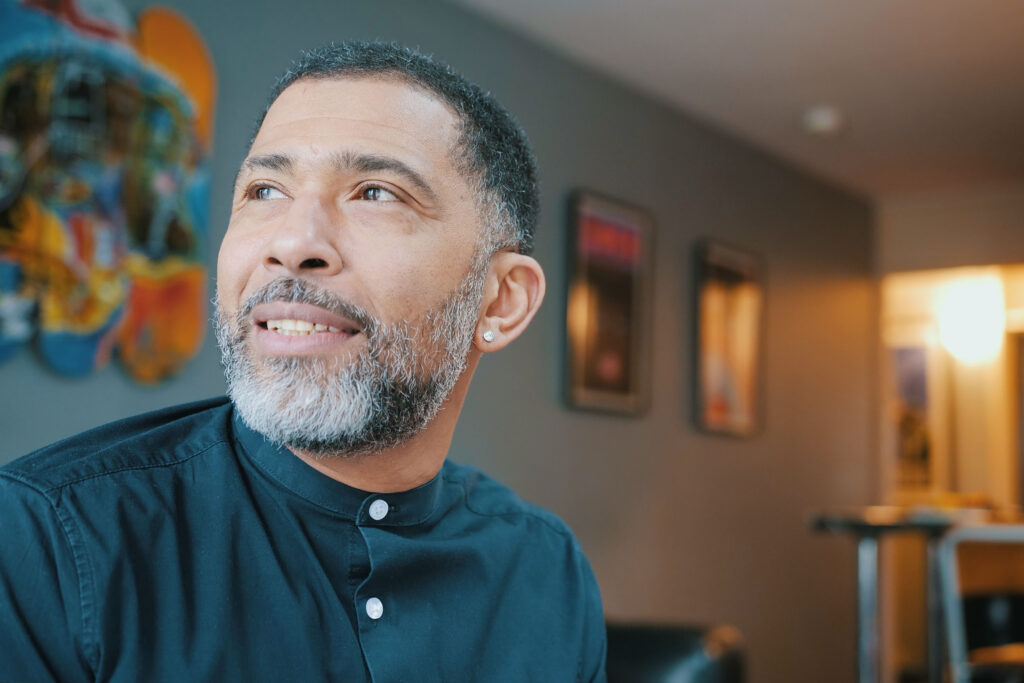
When Marc Thompson got his HIV diagnosis in 1986, aged just 17, it was a terrifying and lonely moment. The AIDS epidemic was ripping through the UK, and callous and cruel headlines about those who had contracted it were a regular occurrence.
But Marc, living in Brixton, the area he had grown up in, was able to find solace in The Landmark, a centre that supported people living with HIV and AIDs.
More than 30 years later, aged 51, he is appearing on the BBC’s Saved By A Stranger, which documents his hunt for John Shanks, a volunteer at the centre who counselled him through this dark period and, in Marc’s words, “made a huge impact on my life”.
Speaking to the Brixton Blog, Marc says that despite the societal prejudice faced by being both gay and a black man in the UK at the time, he loved being part of the “vibrant, gay and gay black community in Brixton”.
There were parties, and pubs which sadly no longer exist. “It was a really fun place to be. It was really safe for me because my family were there, my friends were there. And it was a real sense of community that I belonged to,” he says.
Then came the diagnosis. It was not only frightening but “really, really isolating,” he explains. At the time, it was often a death sentence and many people felt unable to tell even their closest friends and family.
To spend a lot of your teenage years thinking about death and dying and illness is really hard, he says in the documentary.
“Fortunately, the Landmark Centre was bang in the heart of Brixton,” he tells the Blog. The Landmark offered a range of support for people living with AIDs, from money and legal advice, to counselling and support groups to acupuncture and massages. “It was good to know that there were services on my doorstep that I could access.”
Marc is emphatic on how crucial a centre like this was to his ability to carry on with day-to-day life. With the stigma and the horrible headlines in the news, “I would walk there and be really nervous someone would see me, but as soon as I entered into the door, a huge wave of relief would wash over me,” he says.
There was a lot of talk about the physical health problems of HIV and AIDs but mental health is such an important issue, Marc says, and having somewhere safe helped “to navigate and negotiate those things.”
In the 1980s, Lambeth had some of the highest rates of HIV in the country, and it does still today, he adds.
Marc says that while medication means that those with HIV are able to live much longer and not pass the disease on, there is still a need for psychological community-based services for people living in poverty or who may have stopped working, not just because of the stigma but because there is also an ageing population of people living with HIV.
“Now, they may not be HIV specific services, but they need to be HIV friendly, and I think that’s what’s really important,” he says. There is also a need to get more people tested in the borough, Marc adds.
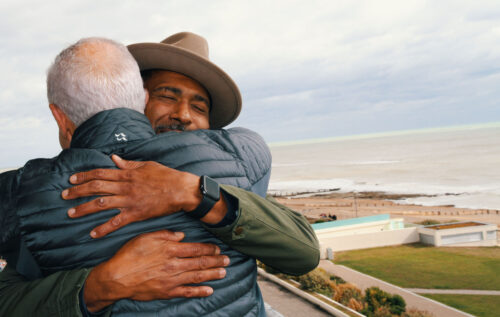
The Landmark, founded at 47 Tulse Hill, is long since gone, replaced by a private nursery.
He says he has been “on a real roller coaster journey with Brixton changes” over the past decade or so, finding it “almost unrecognisable to the area that I grew up in”.
The main loss is the sense of community, which was so integral to Marc’s life. “At the time when I was accessing services, I felt part of the wider Brixton community. The Landmark felt like it was precisely where it should be,” he explains.
In particular, it was John’s counselling that had such a huge impact on him. “I was kind of moving around in the darkness, very confused, very angry,” he tells the Brixton Blog.
In the documentary, he says “I remember talking to John, saying it feels like there is a wall and I know that there is something over that wall that means that everything will be ok, but I cannot get over that wall.” John helped him figure out solutions to his problems, providing advice on “how to work on them myself”, but crucially “he showed me kindness”.
“I knocked that wall down and what was on the other side was beautiful and amazing. And it’s thanks to him saying ‘you will get over that wall, at some point’,” Marc tells presenter Anita Rani.
That is why he got involved in the programme: “to express my thanks and my gratitude to [John]”.
“Very often people come into your life and they do something like that, and you never get a chance to pass on their thanks… I couldn’t pass up on that opportunity,” Marc says.
Saved by a Stranger, Thursday at 9pm on BBC Two
The show is available on BBC iPlayer for at least a year

